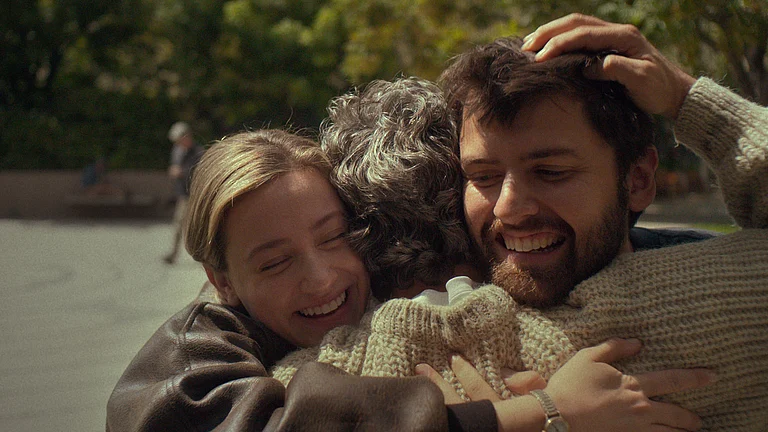The fourth season of the once-pulsating The Bear runs in circles. Every show reaches a point where a crisis of faith in itself becomes all-pervasive. It’s a test that determines whether the makers still have anything to say without leaning on the previously established. A lot of runoff from earlier seasons congests the latest in the series.
Season 4 opens in the aftermath of a mixed review the restaurant had received. Much was already riding on it. Now, an ultimatum is thrust on Carmy (Jeremy Allen White) and his team. Uncle Jimmy (Oliver Platt) offers them two months by which they have to prove the business has a shot at being sustainable. The decisive factor would be a review with a high star rating. The stakes are as high as ever. There’s even a timer put in the kitchen. Yet, an urgency never kicks in. Season 4 meanders in a baffling, bloated mess. Creator Christopher Storer strains to pile on trauma threads and emotional reckonings but it’s all so loose and rambling that the show seems to get lost. The Bear scrambles for coherent, sharp storytelling.
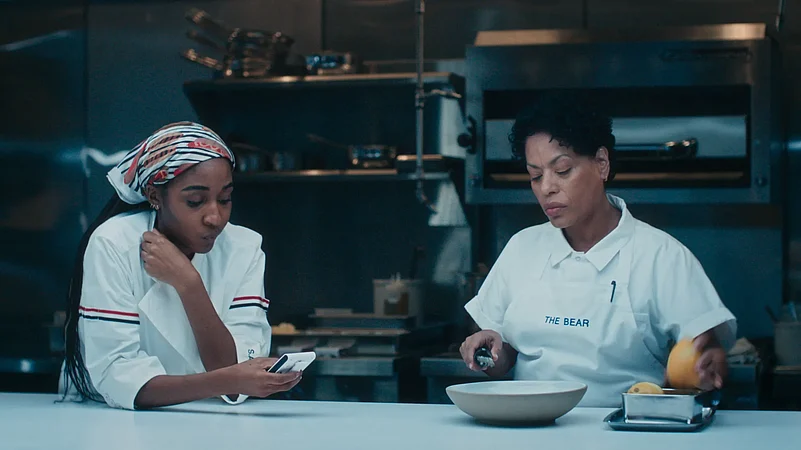
Characters are stuck. The series reflects a journey where they can either try to act on it or remain unsure. There’s too much dawdling—an inability to cut to the chase. Even as budgets for supplies are being curtailed, the cooks have to be at their best. But Carmy is still evasive, buried in grief and guilt over rash, hurtful decisions. He’s holed up deep within but dodges acknowledging its spillover into his present relationships and workspace. The very link to his passion for cooking turns precarious. As his ever-intuitive sister Sugar (Abby Elliot) puts things in perspective, it’s okay to admit he’s no longer in love with cooking. The fact that he is capable of that amount of love should be reassuring.
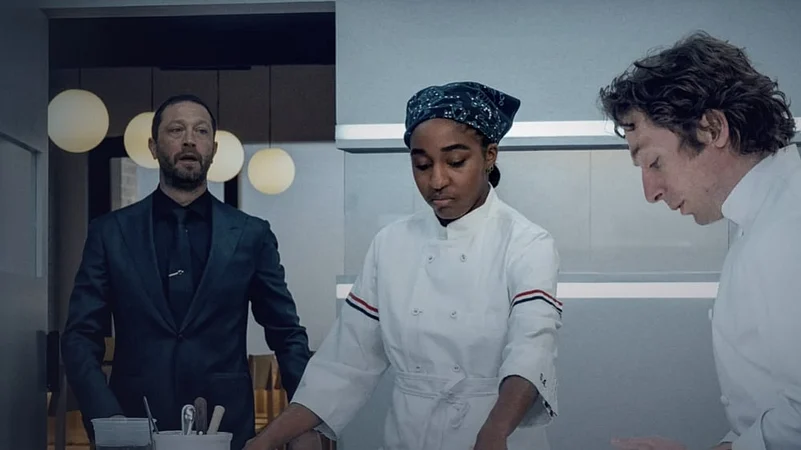
Once in a while, a now-rare blindingly honest, emotionally bare moment cuts through the noise. In a standout episode, Sydney (Ayo Edebiri) goes to get her hair done by a friend. But she finds herself held up for a while with the latter’s young daughter. Through conversations between the two, Sydney tries to get a grip on her own dilemma. Sections like this make the clutter bearable.
The season carries forward much of the previous one’s track, where Sydney baulks at signing up for The Bear’s partnership. She delays it as well as keeps the other offer to break off from The Bear and join a new restaurant where she can enjoy greater control. Carmy’s environment of high anxiety and chaos and his inaccessibility makes him completely shut off. It’s left to Sydney to drive the team together, keeping spirits high. Carmy doesn’t motivate her and she can’t find room for growth. When she does pull off something excellent, he’s almost awkward and terse. In a space like this, how will she hone her skill?
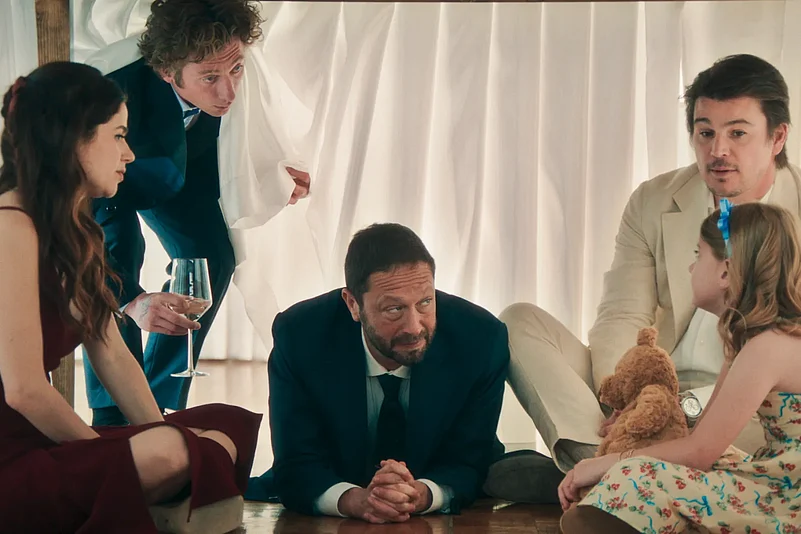
But she loves the people, the familiarity of co-workers who do care and look out for one another. Beneath the punishing stress, there also exists tenderness and generosity. As much as it gets overwhelming working with Carmy, she cannot shake off the long journey she has been on with him. If she were to quit, she fears losing all the friendships she forged. Sydney thrives on a shared history, building it forward. But is that enough for her to stick around? Sydney has an infinitely more attractive proposal. If she were to accept, her potential new boss promises all that she has ever sought. Her being torn underpins much of this season’s fraught uncertainty. Edebiri grounds the troughs of tentativeness. As much as Sydney is emphatic about her freedom, she pines for some guidance as well. The actress inhabits frustration, indecision and pure terror in a perfectly judged mix.
The Bear works best when it shifts away from Carmy. There’s a moving scene he shares with his mother, Donna (Jamie Lee Curtis), who insists she’s really trying to be a better, balanced person, but it can’t help feeling like a retread. Even the longest episode, just over an hour, doesn’t earn its length. Brie Larson is utterly wasted as Sugar’s estranged friend in a track all about forgiveness. At one point, Storer makes his characters coop up under a table, where they share fears. It’s a moment of calm, making way for a sense of found family. Yet the entire conceit comes off as too showy, distended from its emotional terrain instead of working in tandem.
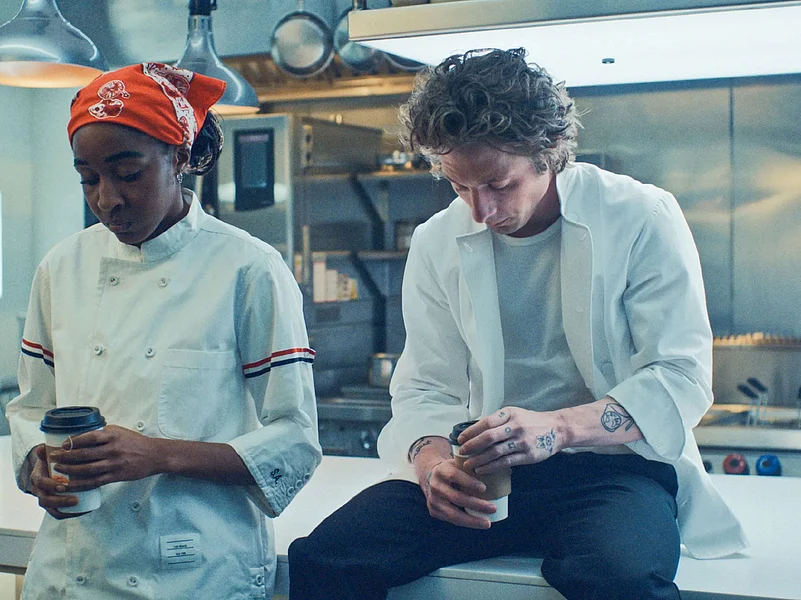
The latest season is so consumed by navigating personality-driven stuff that it diverts from the food itself. Some tracks—like chef Marcus channeling his healing after his mother’s death in the desserts he experiments with—have clearly hit a logjam. It’s also just frankly tedious to watch White drag through a mostly wretched, self-abnegating Carmy, having little variation or shade to play with. Doubly annoying is the show’s boldly persistent, insufferably stretched Carmy-Claire faded romance. There are stray flashes of promise, like Tina’s determination to ace a particular dish within three minutes. It reminds us where The Bear once sizzled. As long as it knows when and how to branch out from its single-track Carmy miserablism, it might shoot back.






